The new season in the Champions League started with some intriguing games, one of which was the meeting between Lazio (Serie A) and Borussia Dortmund (Bundesliga).
Simone Inzaghi managed to outwit Lucien Favre with the help of the players who successfully executed his tactics on the pitch. Relying on solid pressing strategy and defensive awareness, Lazio were able to block Borussia’s creativity in attack.
The German side were overcommitted to their forward actions which cost them a lot defensively, leaving huge gaps that Lazio didn’t hesitate to expose in a smart manner by counter-attacking whenever possible.
This tactical analysis examines how the Biancocelesti kept their opponents away from the goal and how they took advantage of Borussia’s lack of clear tactical approach to get the 3:1 win in their first 2020/21 Champions League encounter.
Line-ups
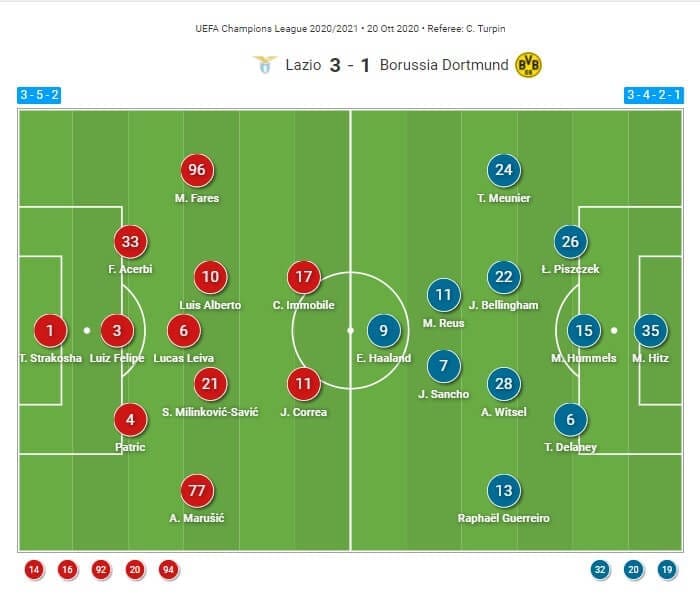
Both managers didn’t experiment with their set-ups. Inzaghi relied on his favoured 3-5-2 with Thomas Strakosha on the goal, who turned out to be their saviour in this game, compensating for Lazio’s defensive mistakes.
The three-man defensive line consisted of Francesco Acerbi, Luiz Felipe and Patric who were all responsible for the team’s solid defensive performance and a great supporting system for Strakosha.
In midfield, the coach relied on two wing-backs Mohamed Fares (left) and Adam Marušić (right) while in the central areas were occupied by Luis Alberto, Lucas Leiva and Sergej Milinković-Savić. The attacking line was formed of Ciro Immobile and Joaquín Correa.
The team looked quite different in the second half where Inzaghi made five changes but kept their formation in aim to repeat the good performance from the first half. The first change was forced after an injury of one of their best performers Felipe, while all other four substitutions aimed to bring fresh blood into the attack and boost their creativity.
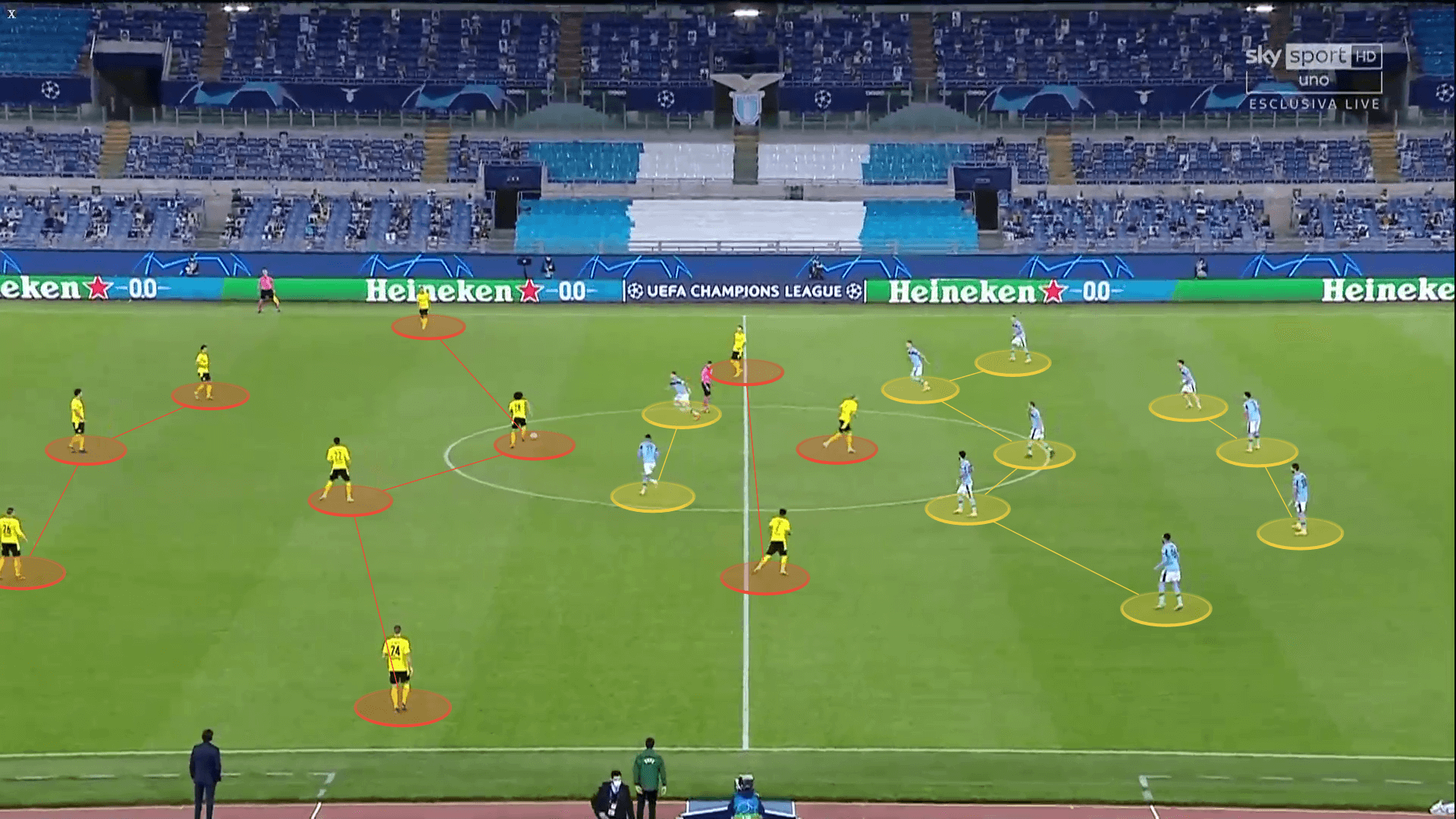
Borussia employed a 3-4-2-1 formation with Marwin Hitz on the goal, supported by Thomas Delaney, Matts Hummels and Łukasz Piszczek. In midfield, Favre relied on Raphaël Guerreiro, Axel Witsel, the 17-year-old Jude Bellingham and Thomas Meunier. Upfront Jadon Sancho and Marco Reus were providing support for Erling Haaland.
After a not very efficient performance in the first half, the manager switched to a 4-2-3-1 and made quite a few positional changes, introducing some substitutions. Piszczek was subbed off, while Guerreiro and Meunier dropped deeper as part of the backline. Reus dropped out of the attack to the midfield, while Giovanni Reyna joined Sancho. This brought some difference in the team’s actions and increased their explosiveness.
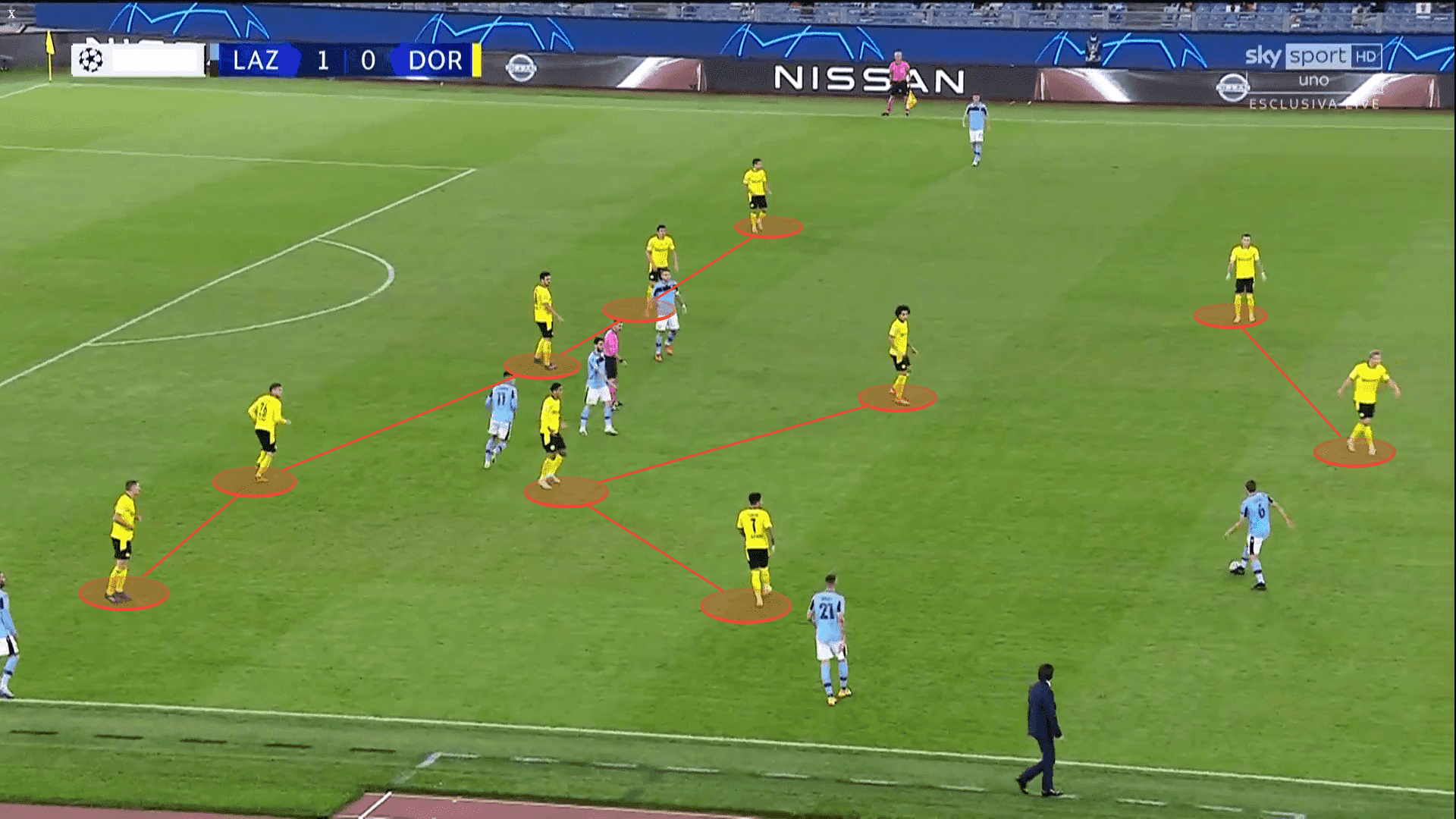
Borussia’s build-up efforts failed against Lazio’s press
Borussia kept quite a compact shape with a highly positioned three-men defensive line in efforts to focus their actions in the opposition half. The centre-backs were the ones to retain possession while trying to build-up from the back. That sounded like a good plan, but Lazio’s pressing strategy was well thought and they didn’t give any room for movement and creativity to the Borussia players.
They were pressing high and blocking the passing lanes, forcing the German team to circulate the ball deeper in their own half. The wing-back Guerreiro was among the most active players, trying to advance the ball but Witsel was even more important since he played the role of a passing outlet and his positioning was important for bypassing the press. He would constantly move around in order to open the passing lanes, although most of the times he found himself tightly marked by the opposition.
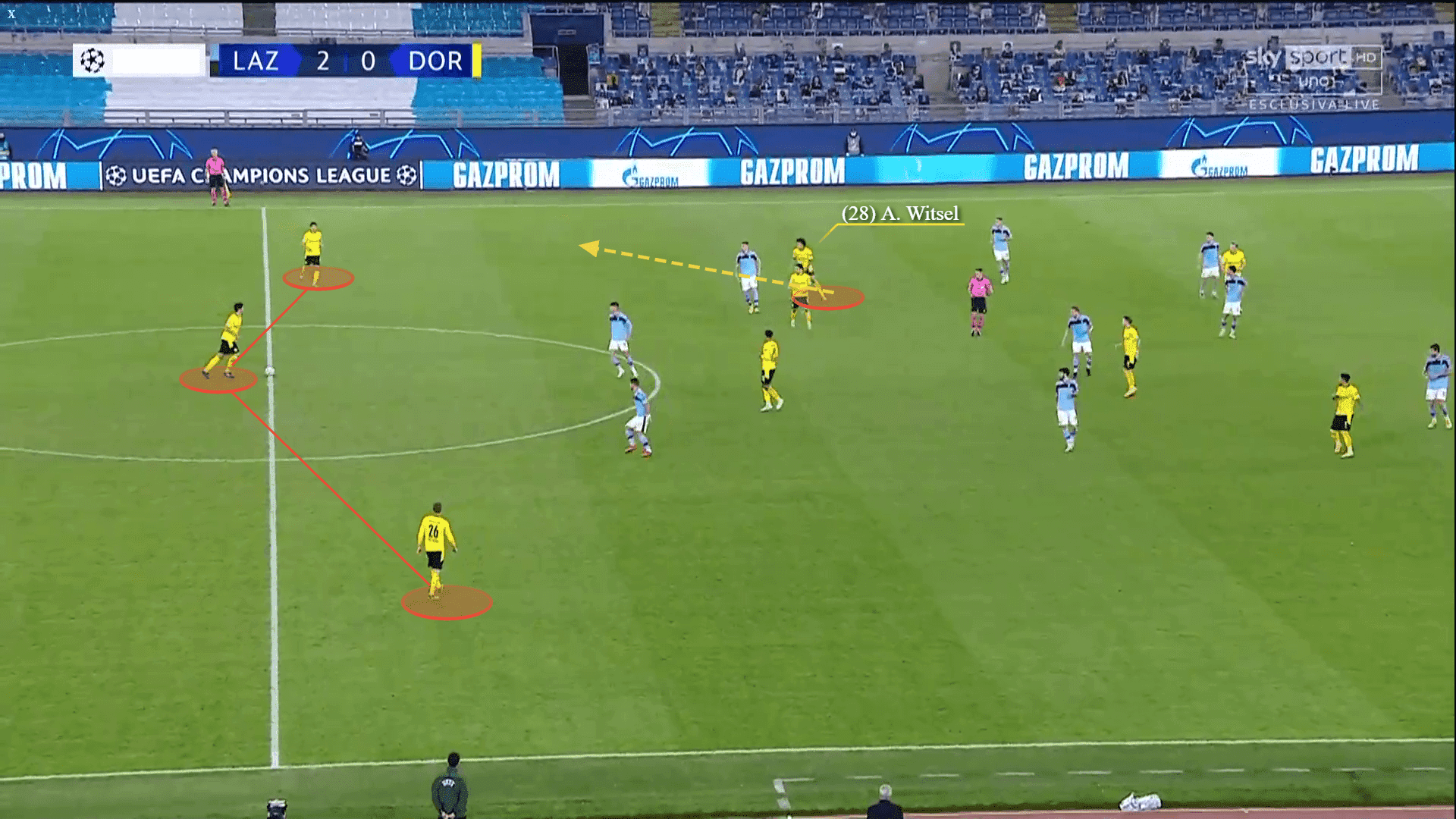
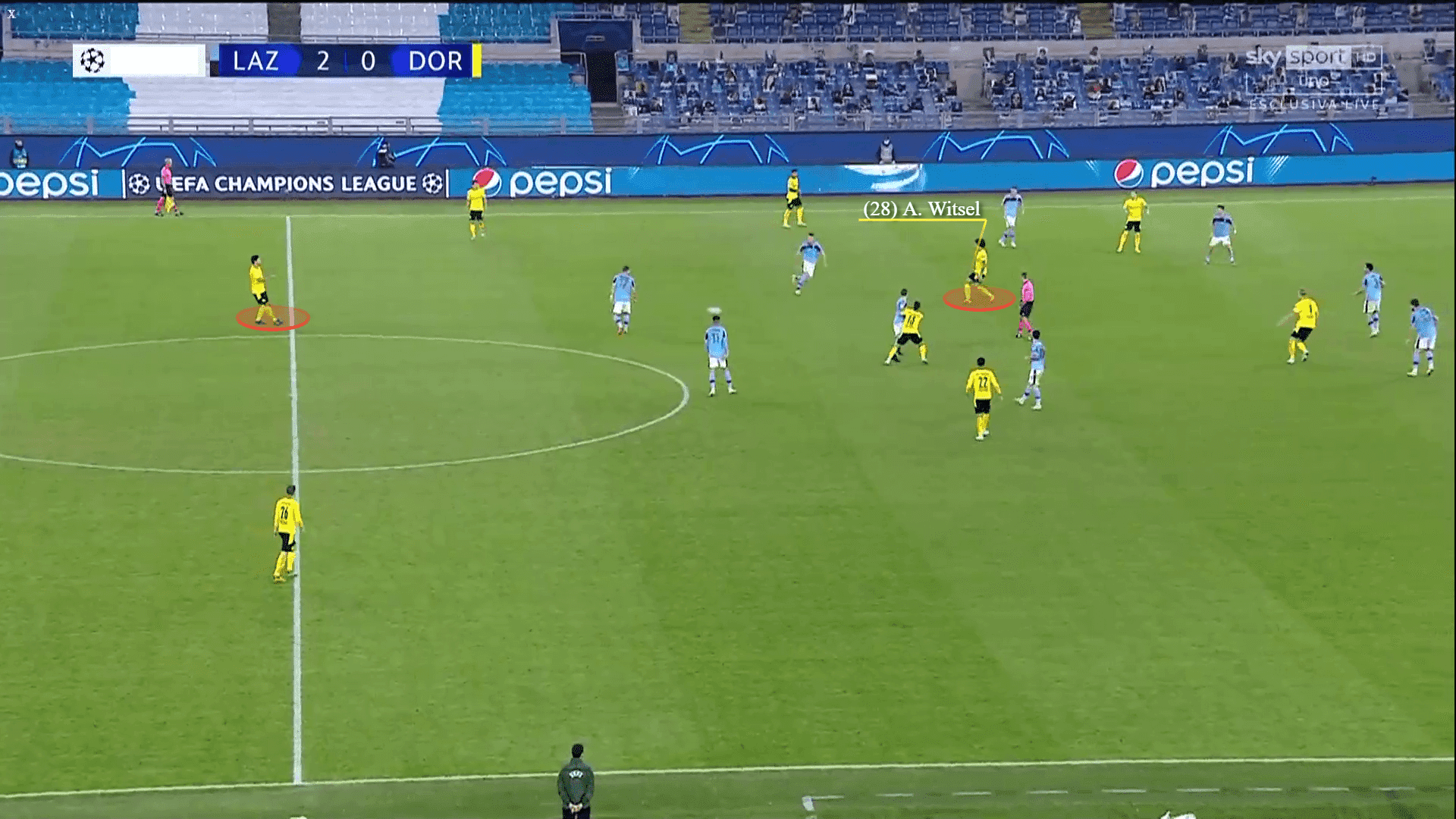
If you look at the data, it seems like Borussia demolished Lazio when it comes to possession and passing. The German side had 60% of the possession and executed 685 passes with impressive 88.18% pass accuracy. The truth is that they were forced to constantly change direction and look for a way out of the press but unsuccessfully. They focused on high pass intensity but lacked explosiveness and directness which would often have them stuck in midfield.
Lazio’s strategy worked out well in the first half. After going up 2-0 they released the press and invited Borussia deep in their own half, allowing them even more time on the ball closer to the goal. This wasn’t reckless though. Borussia immediately took advantage of these opportunities and became more active upfront but not at no cost. The Biancocelesti were still focused on executing their marking strategy well but also knew that their opponents will overcommit to the attacking actions in order to get back in the game. This of course meant that they could leave gaps behind, which Lazio could expose on a counter. And that is exactly what they did.
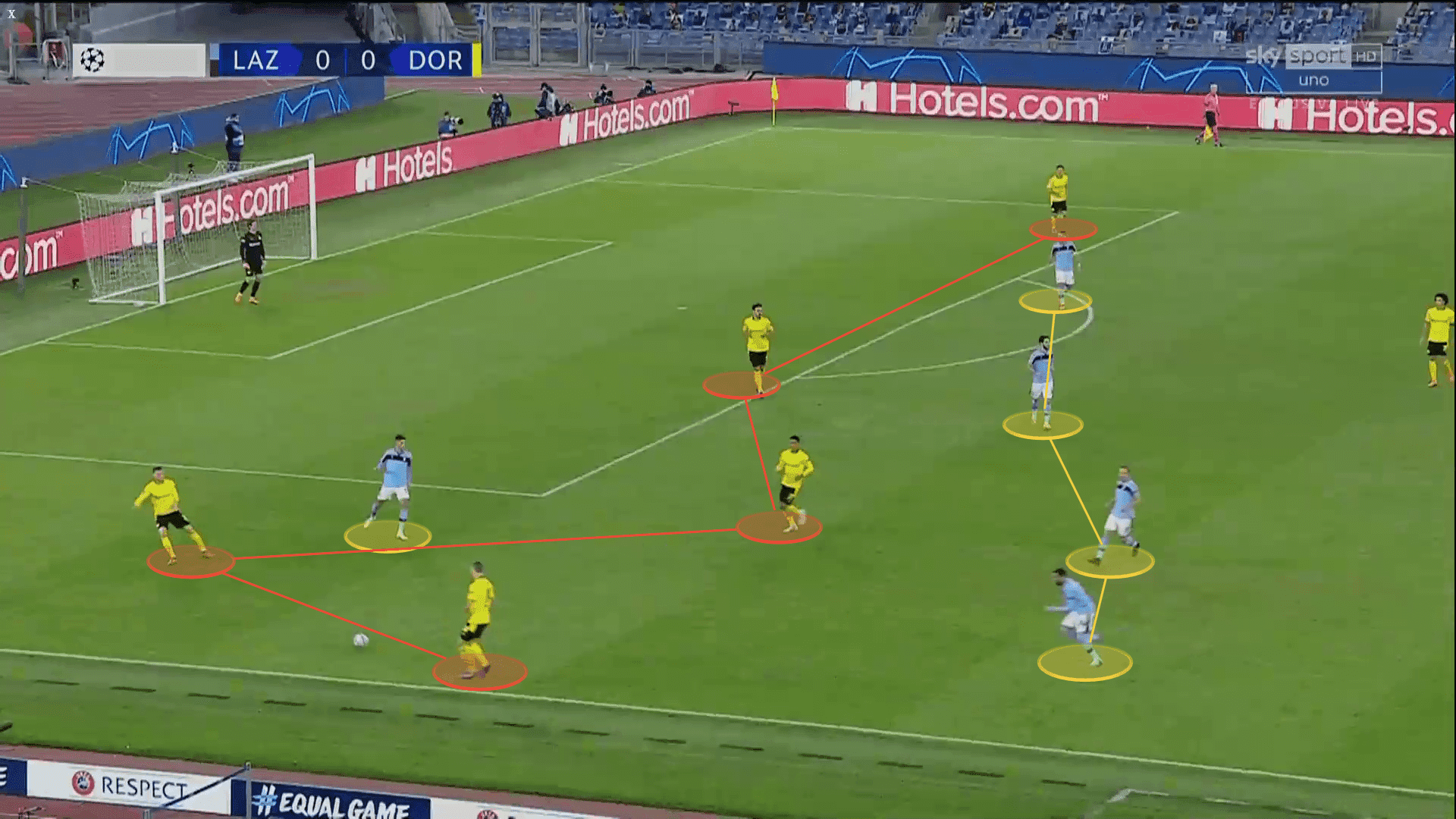
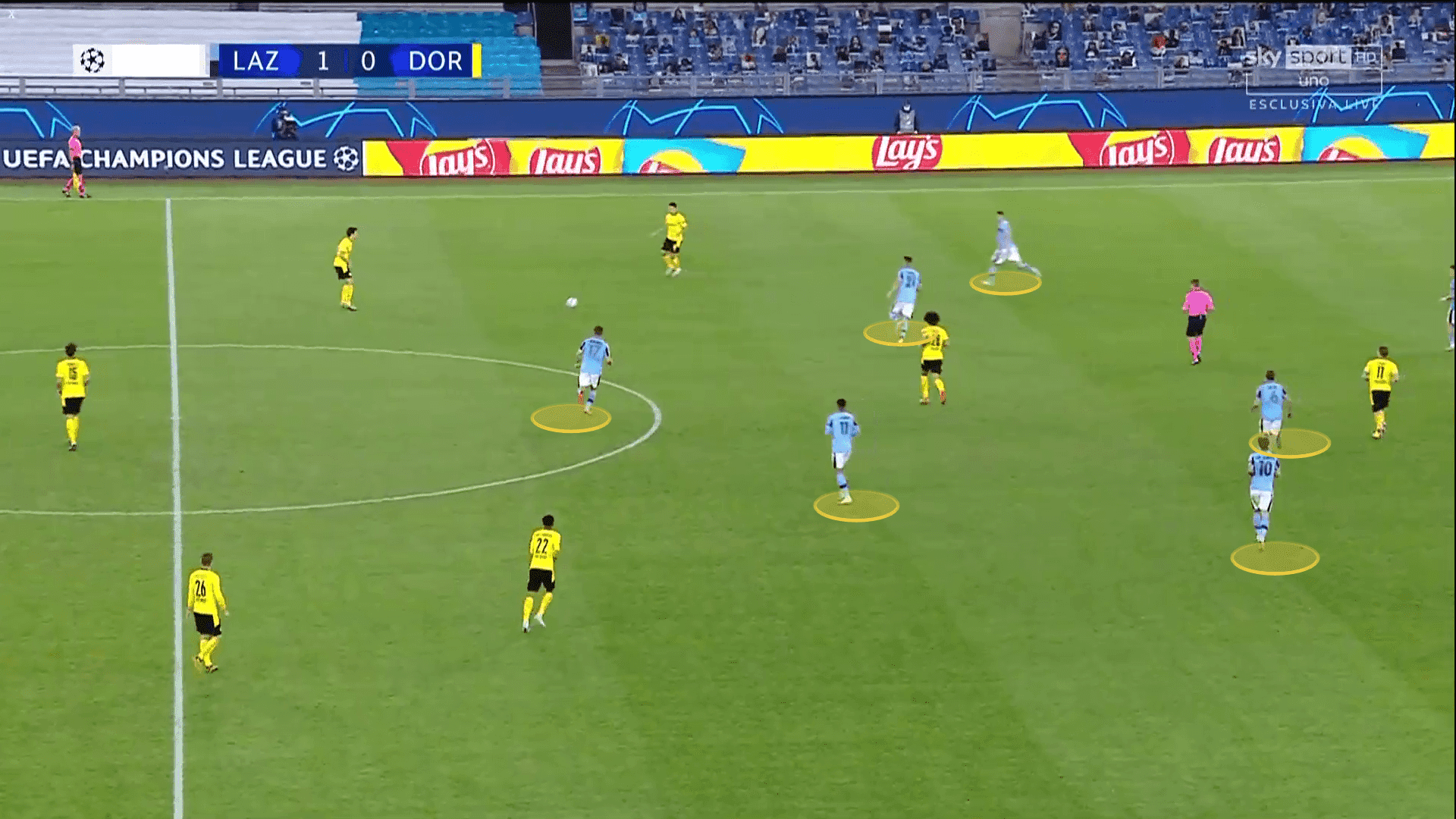
Lazio’s counter-attacking actions and taking advantage of their opportunities
Lazio’s strategy of waiting for the right opportunity and taking advantage of them definitely worked out. While they were completely focused on their pressing and troubling Borussia’s build-up, this didn’t take off of their attacking prowess.
They chose not to put all their efforts into positional play and allowed Borussia a lot of time on the ball. This of course led to a lot of risks, having in mind the skillful and smart players in BVB’s attack. But combined with their marking strategy it was an opportunity to hit the opposition when they are not expecting. Attracting Borussia in the advanced areas and allowing their defensive line up high on the central line was a very smart strategy in order for Lazio to expose them on a counter.
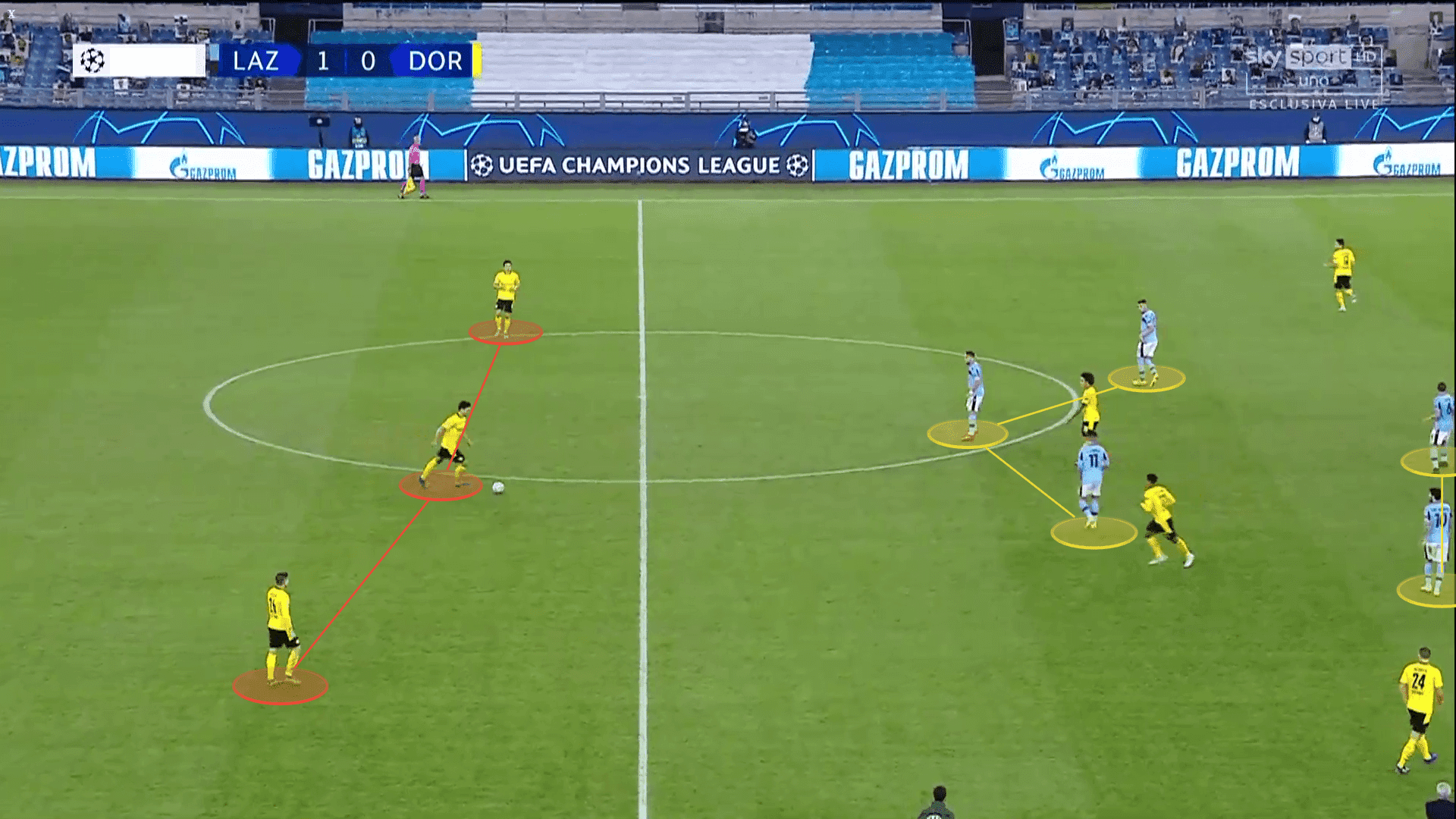
Due to the Germans’ clear attacking approach, Lazio saw a chance to break their slightly neglected three-men defensive line with counter-attacking actions, using the midfielders’ passing abilities and the attackers’ smart movement. They managed to form seven counter-attacks and to shoot four times as a result of them which only confirms their efficiency in that matter.
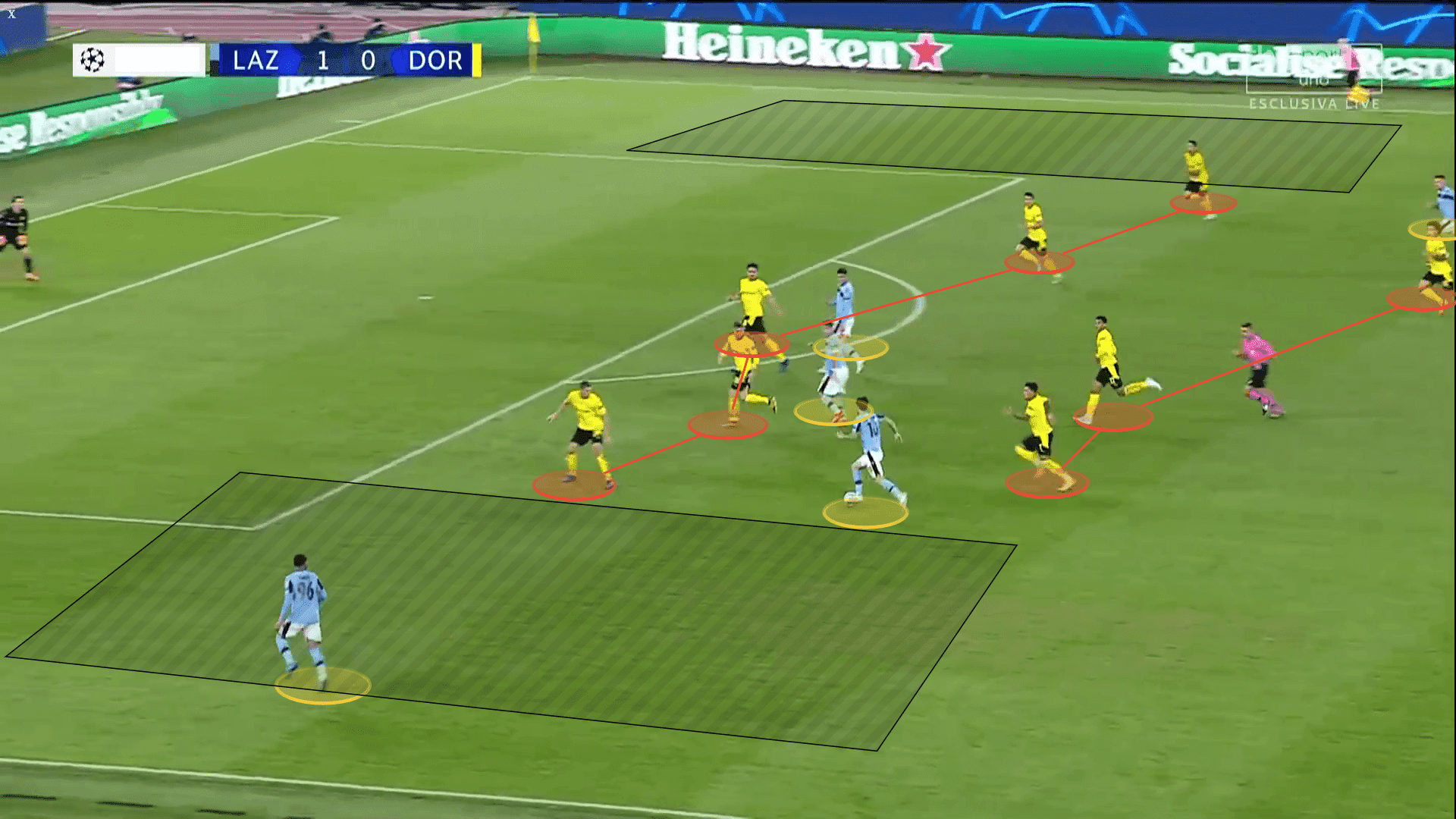
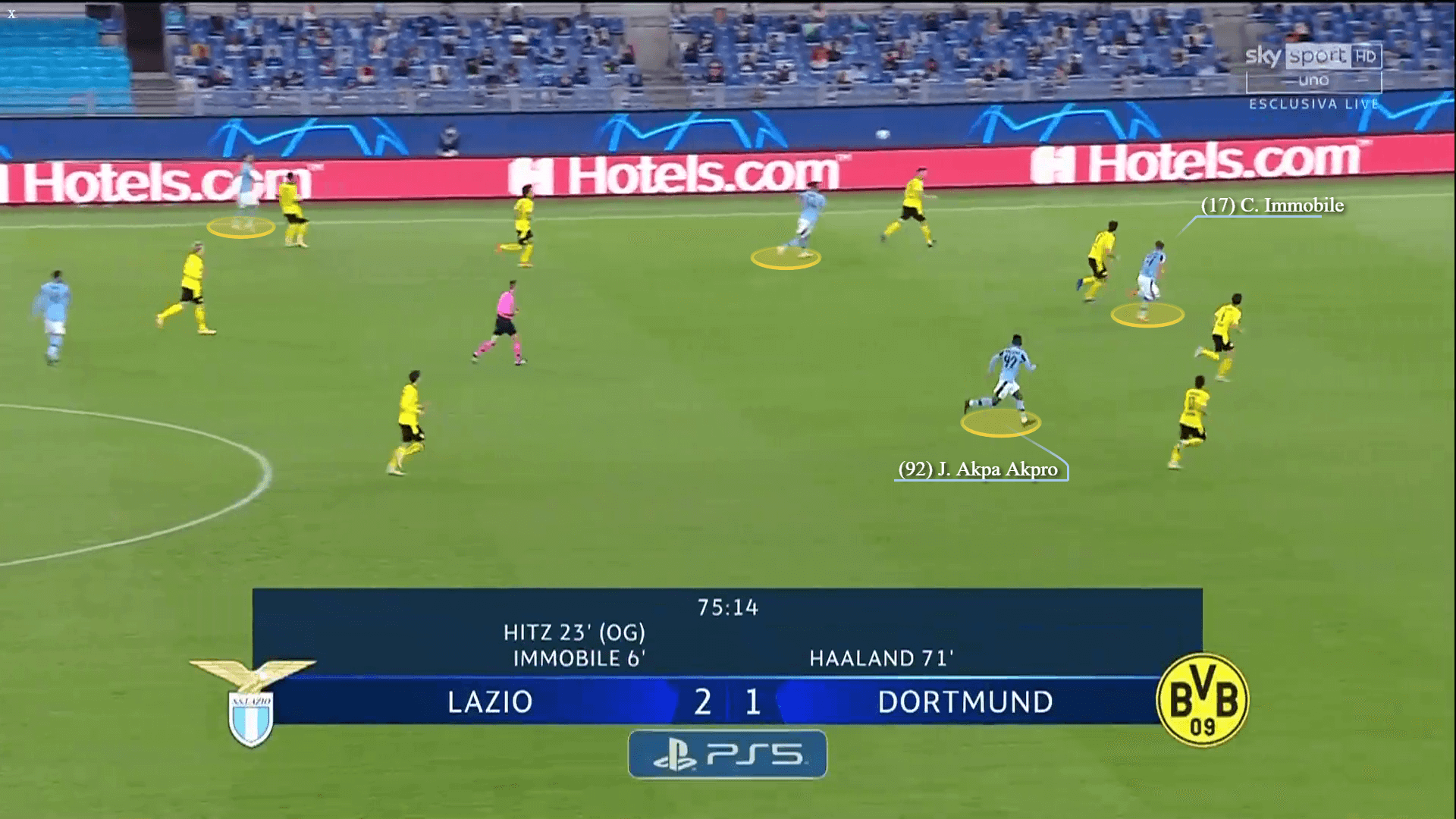
While many of Lazio’s chances came on a counter, they did try expose the opposition in different ways too. They focused their actions on the left and tried overloading the flank in effort to engage more Dortmund players and catch them out of position. They relied on constant movement of the ball between Acerbi, Farez, Luis Alberto and Correa. Combining these short pass combinations with off the ball movement and Immobile’s flair helped them create a few opportunities, although not many of them were on target. Lacking offside awareness also took off of their attacking performance.
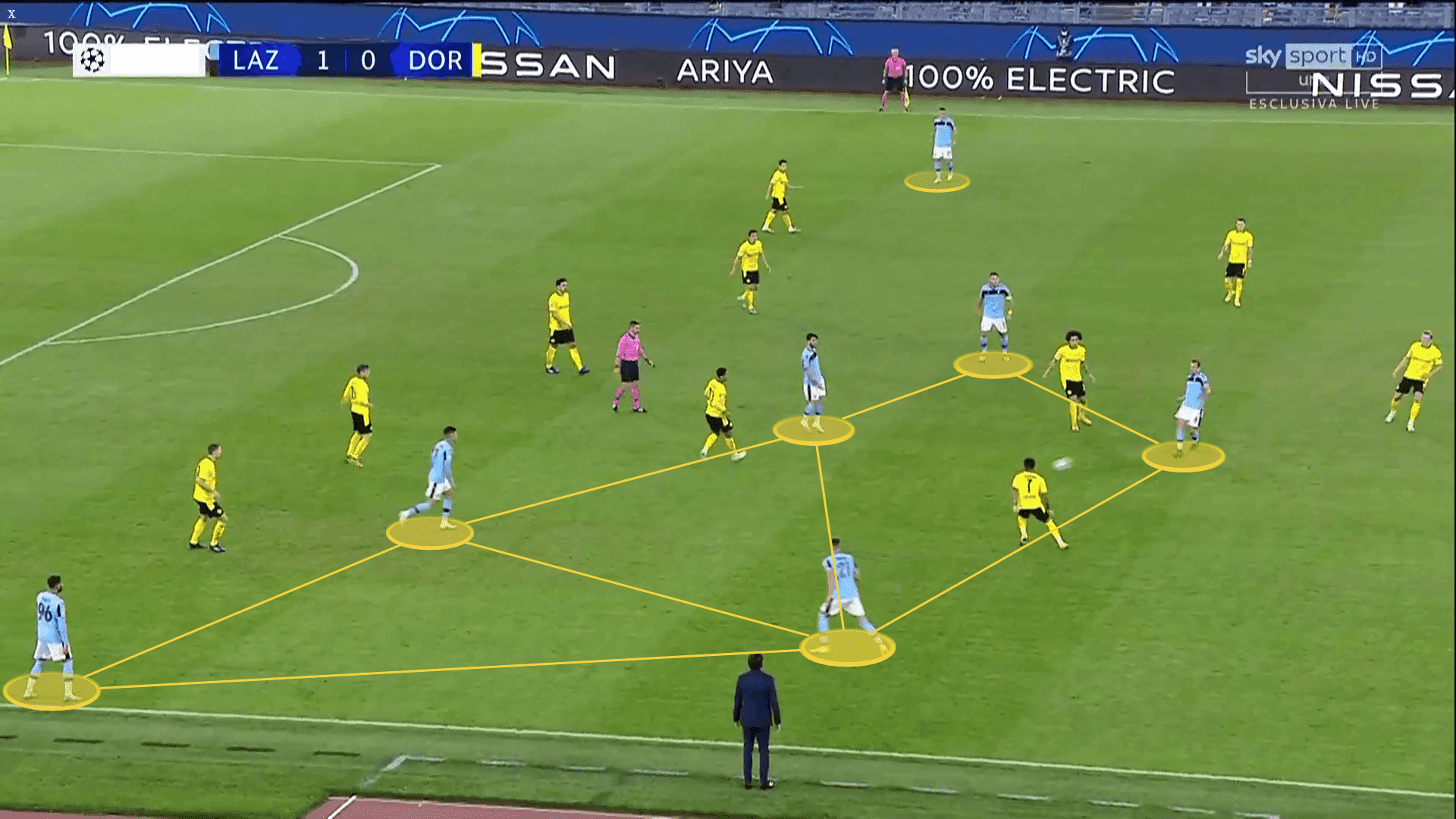
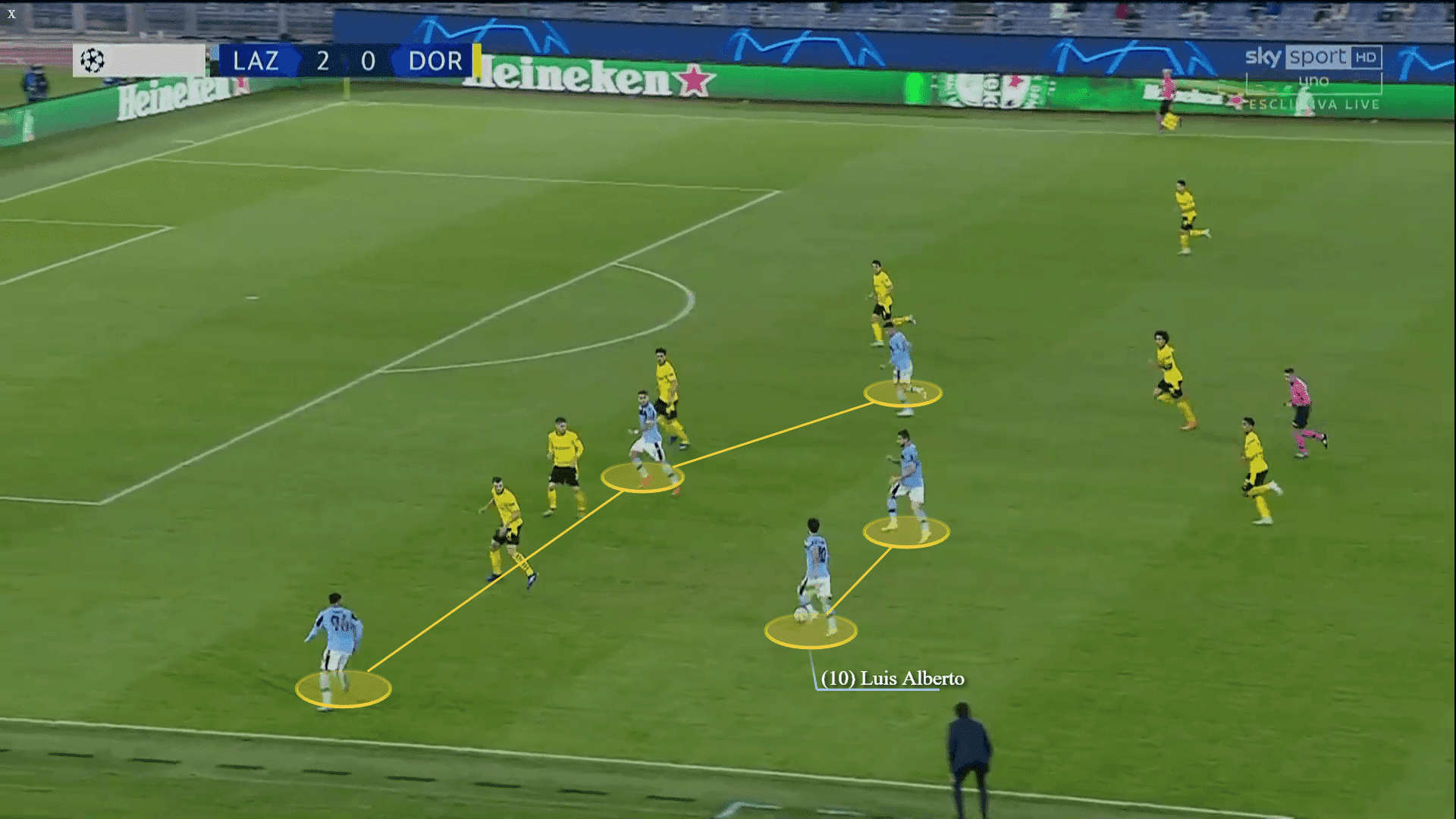
BVB’s final third movement paid off but wasn’t enough
Apart from their build-up being troubled and struggling to advance the ball, Borussia had a problem in taking advantage of their opportunities too. Strakosha’s outstanding performance on the goal made it even harder for the German side to penetrate, but BVB did have their chances that they missed.
While they are known for their creativity and movement up front, they couldn’t find a way out of the press for a long time. Although they sent 22 crosses throughout the game they couldn’t combine well and penetrate. As mentioned, Witsel was quite active in trying to open the passing lanes and would succeed to advance the ball on a few occasions but even his 95% pass accuracy and flair didn’t help. They failed to take advantage of good movement a few times due to the lack of connection.
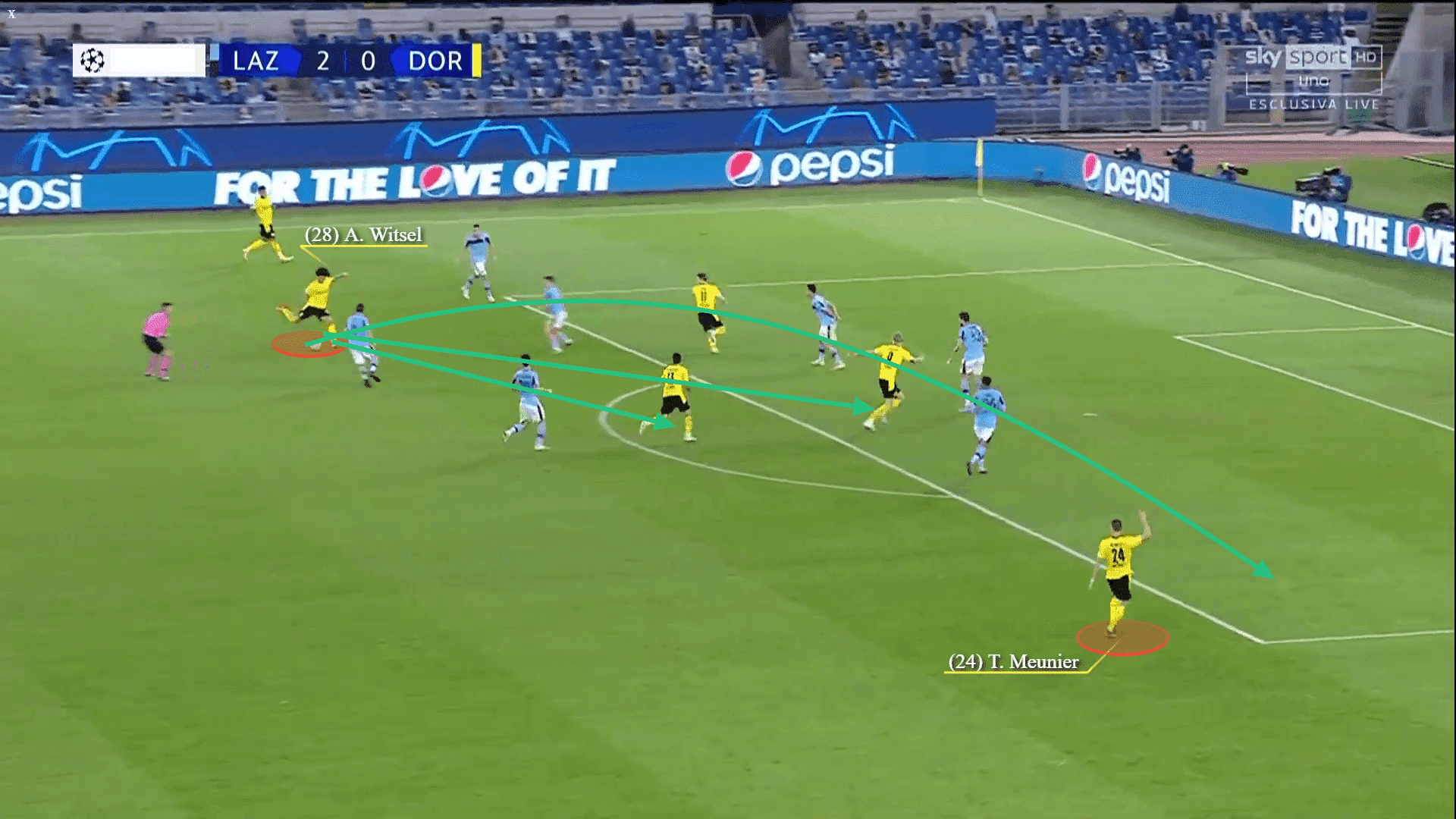
The only thing that allowed them to create danger was their movement in the half-spaces. Expectedly, one of the most active players was Sancho who started the game on the right and was moved on the left later on.
With Favre’s changes in the second half, switching to four-men backline, Borussia gained more confidence and started pushing a lot harder to reach the final third. Having Sancho, Reyna and Haaland increased their explosiveness and gave them more freedom. They started to run on Lazio’s defence more confidently. This was followed by some opportunities in front of the goal thanks to Haaland’s smart positioning and fluidity in their movement that was lacking in the first half.
Their dribbling efforts are also something that helped in holding on to the ball on the edge of the final third and delivering it further. Introducing Julian Brandt helped in that matter as he dribbled successfully past his opponents 4/5 times.
Despite committing more bodies in attack, Borussia couldn’t find the perfect combination that will catch Lazio’s defence off guard and while the Serie A team had their flaws too, the Black and Yellow didn’t seem to take advantage of them.
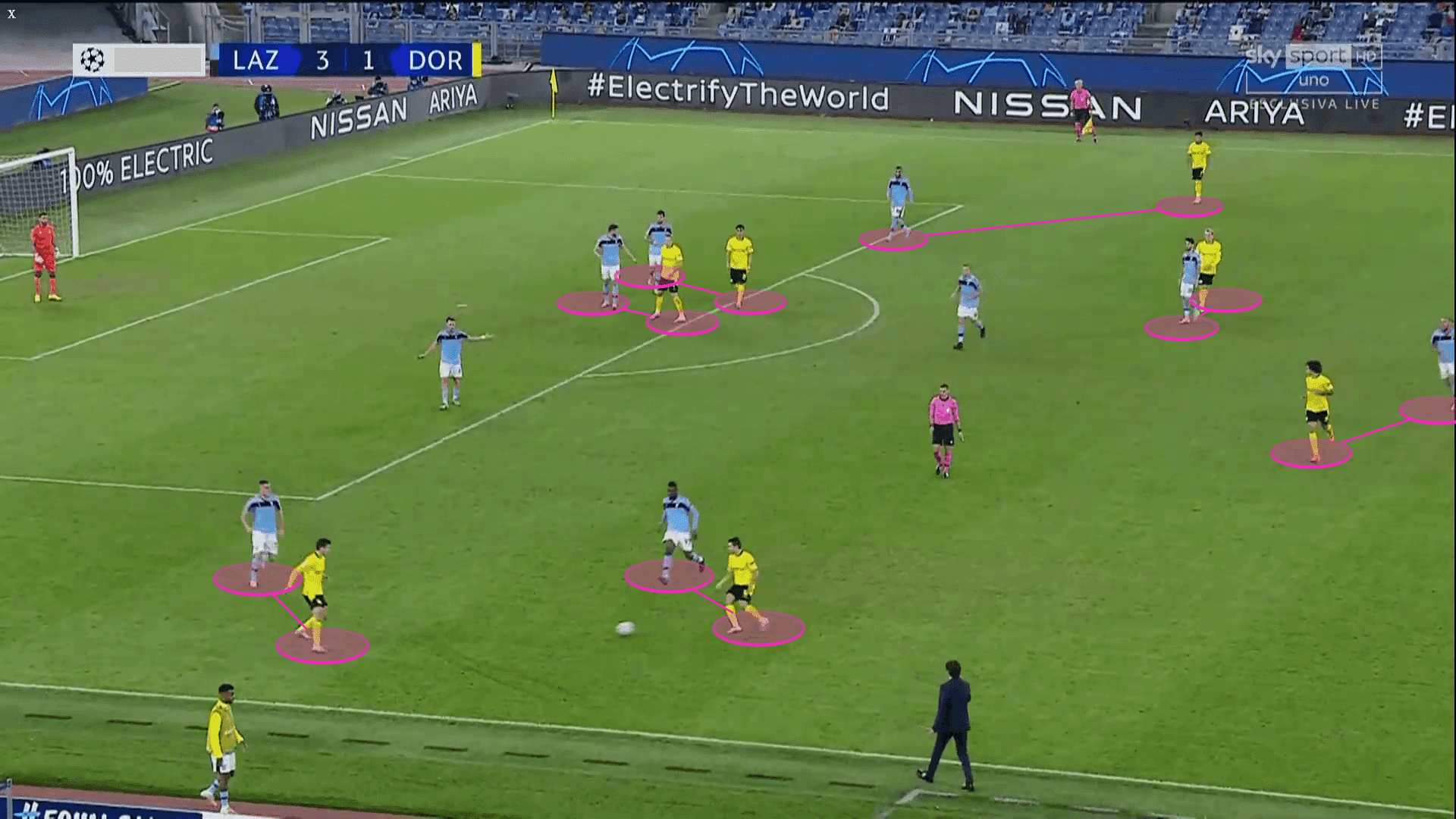
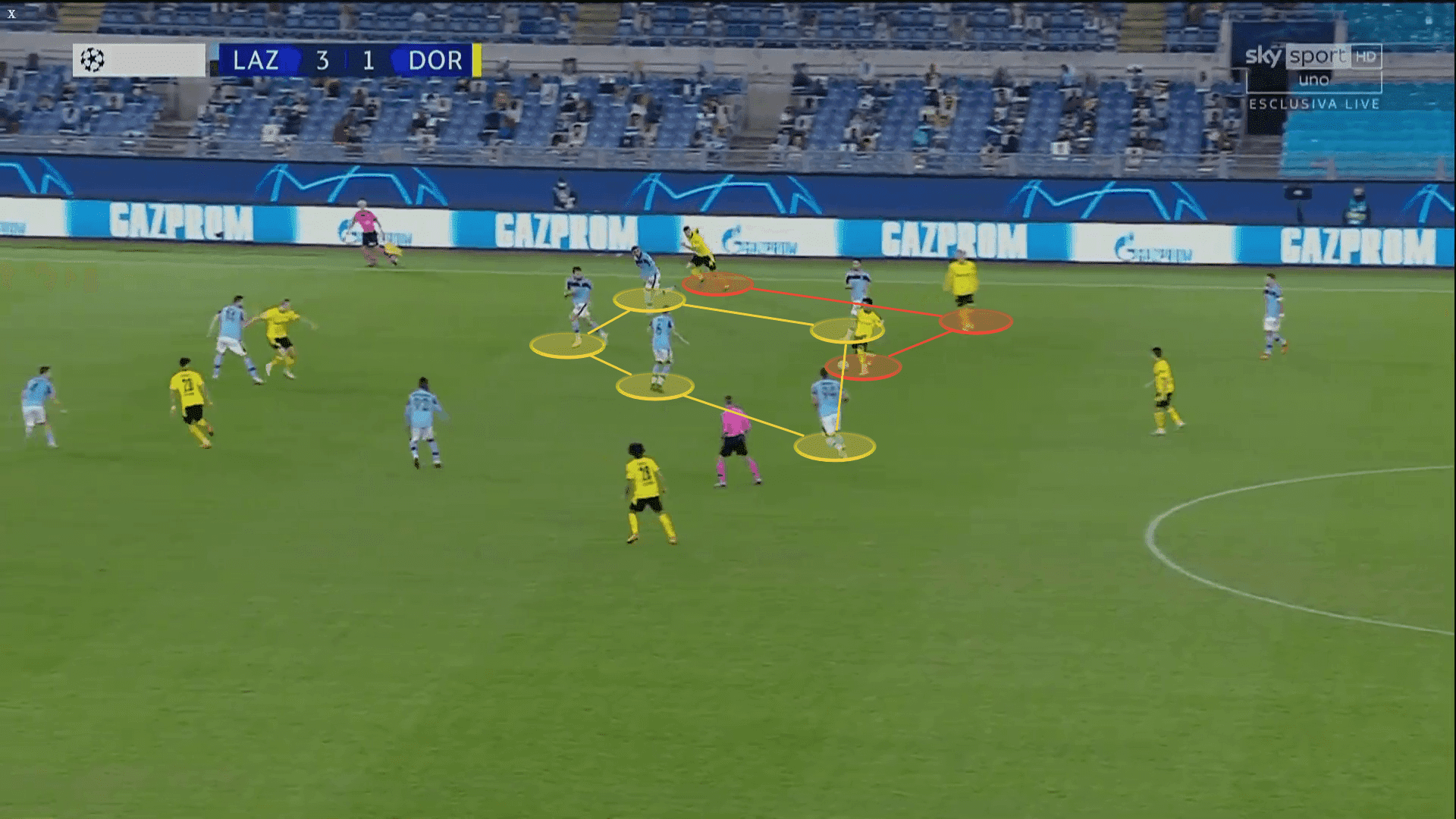
Conclusion
Inzaghi’s tactics were smart enough to outwit Favre’s Borussia and with the help of the players who employed his vision successfully Lazio were able to grab the three points. Favre needs to focus on analysis for their next games and bringing balance between attack and defence should be on the agenda.



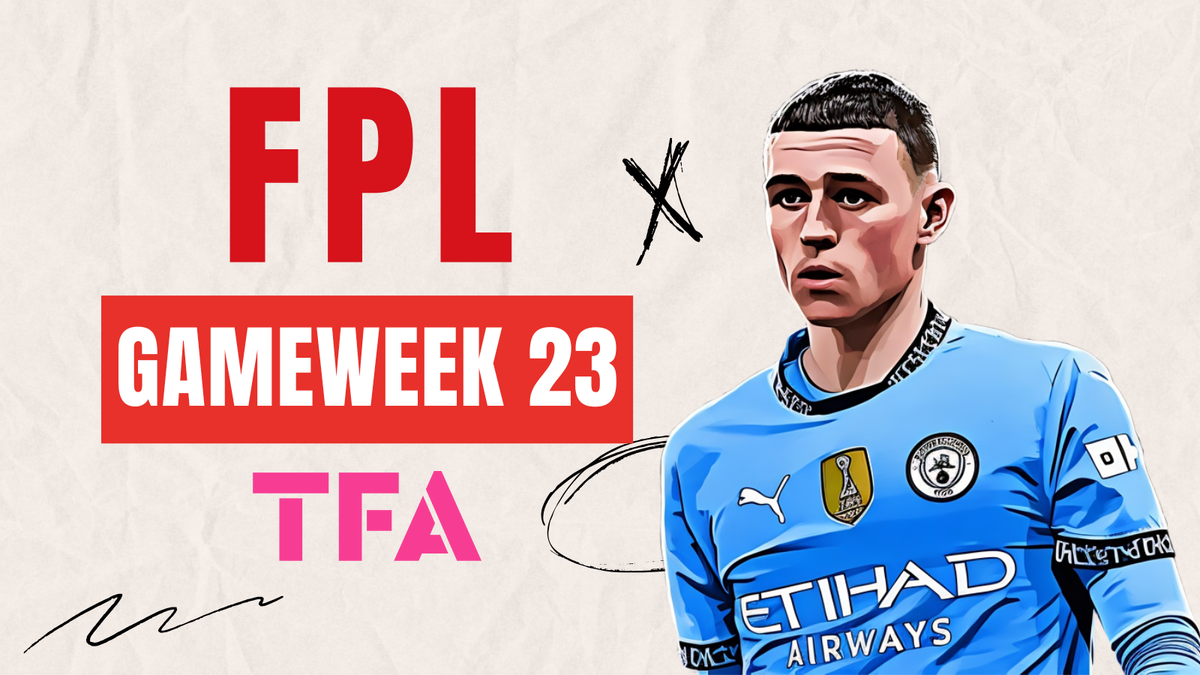
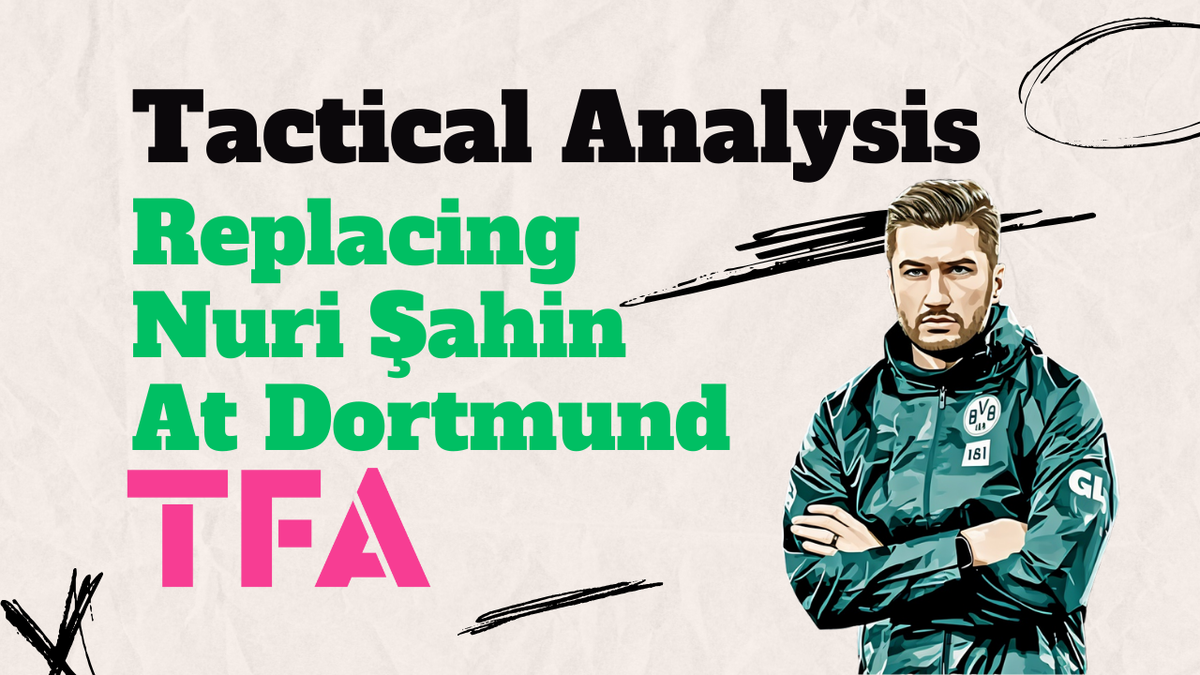
Comments